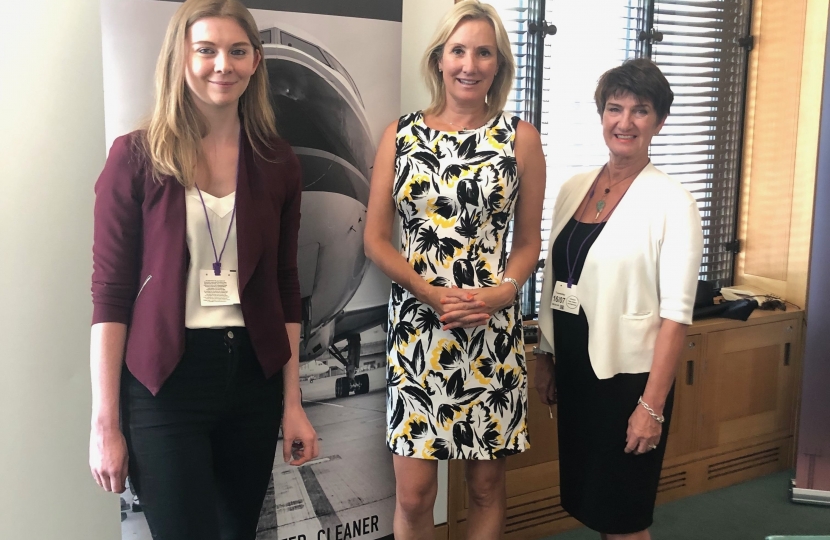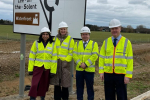
Local MP, Caroline Dinenage, recently attended a parliamentary event to learn about how airspace is to be modernised across the UK, speaking to industry experts from air traffic control provider NATS and trade bodies Airlines UK and the Airport Operators Association.
They are part of a campaign to build public awareness of the modernisation programme under the banner of ‘Our Future Skies’.
The Secretary of State for Transport has spoken about the pressing need to modernise airspace across the UK, which is now part of the Government’s Aviation 2050 strategy, launched in December 2018.
Like the road and rail infrastructure, the invisible infrastructure in our skies needs to be updated if we are to keep Britain moving. The network of routes hasn’t been fundamentally changed since it was first designed in the 1950’s and if nothing is done, more than 1 in 3 flights from all UK airports are expected to experience delays of over half an hour by 2030.
According to research commissioned by NATS, 82% of British adults agree that aviation is important for the UK economy and 59% are in favour of airspace modernisation. And it affects everyone – regular flyers, holidaymakers and businesses which rely on aviation, and of course communities beneath our flight paths.
Modernising airspace includes removing stacks, where aircraft join a circular queue to land at busy airports, bringing noise benefits to those who live beneath them. It will also mean aircraft can climb continuously on take-off, with options for alternating routes, which should provide some respite and reduce noise for residents nearby.
However, while it will change the noise impacts for some communities, and while some will see a reduction in noise, others may experience more noise. This is obviously a contentious issue so Caroline will do their utmost to keep local residents, councils and businesses updated and informed on any changes that affect the constituency.
Caroline said:
“It was great to meet with NATS and learn more about Our Future Skies. This modernisation project is vital to keep Britain at the forefront of global aviation and provide quicker, quieter and cleaner air travel.”


